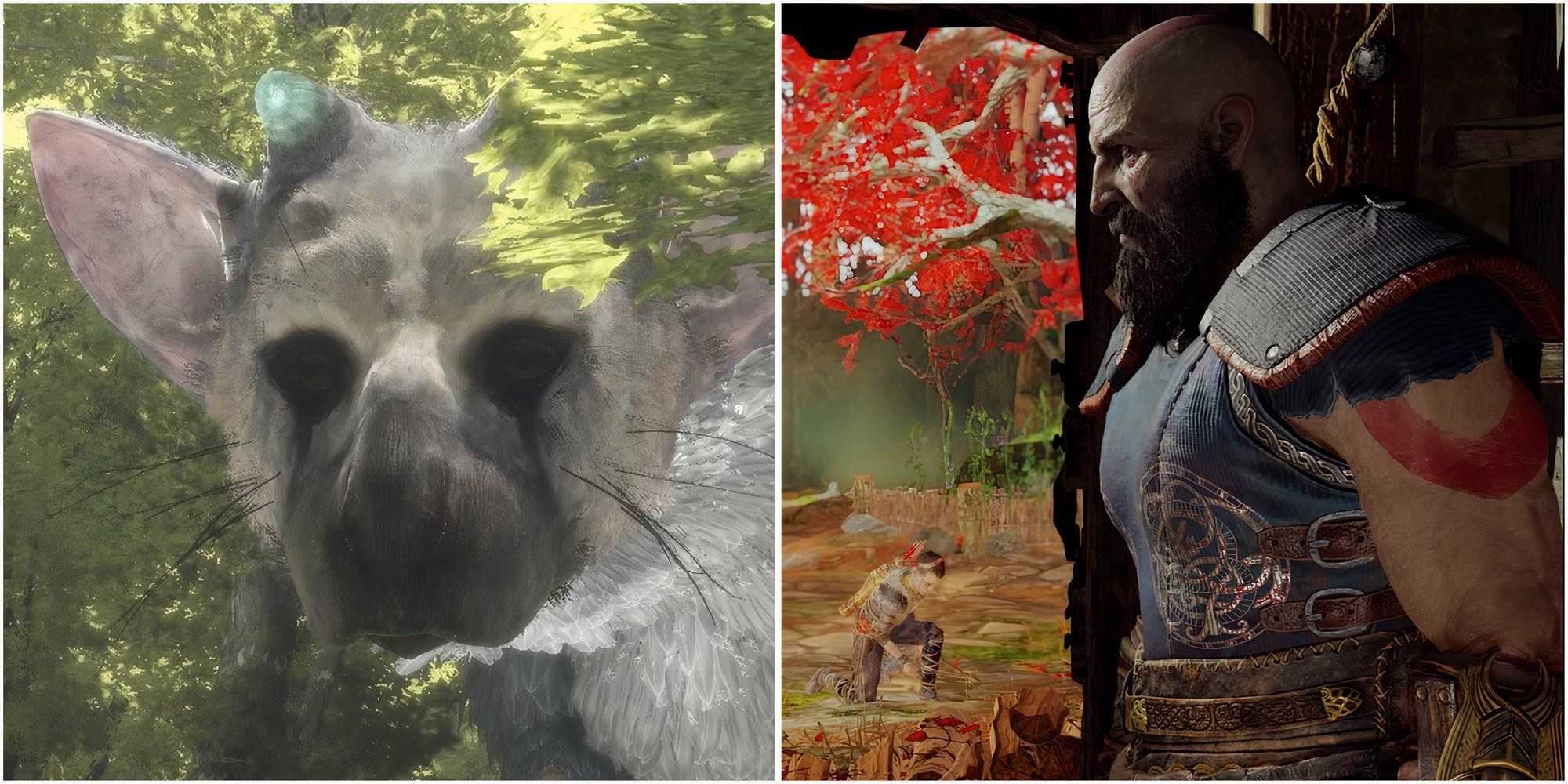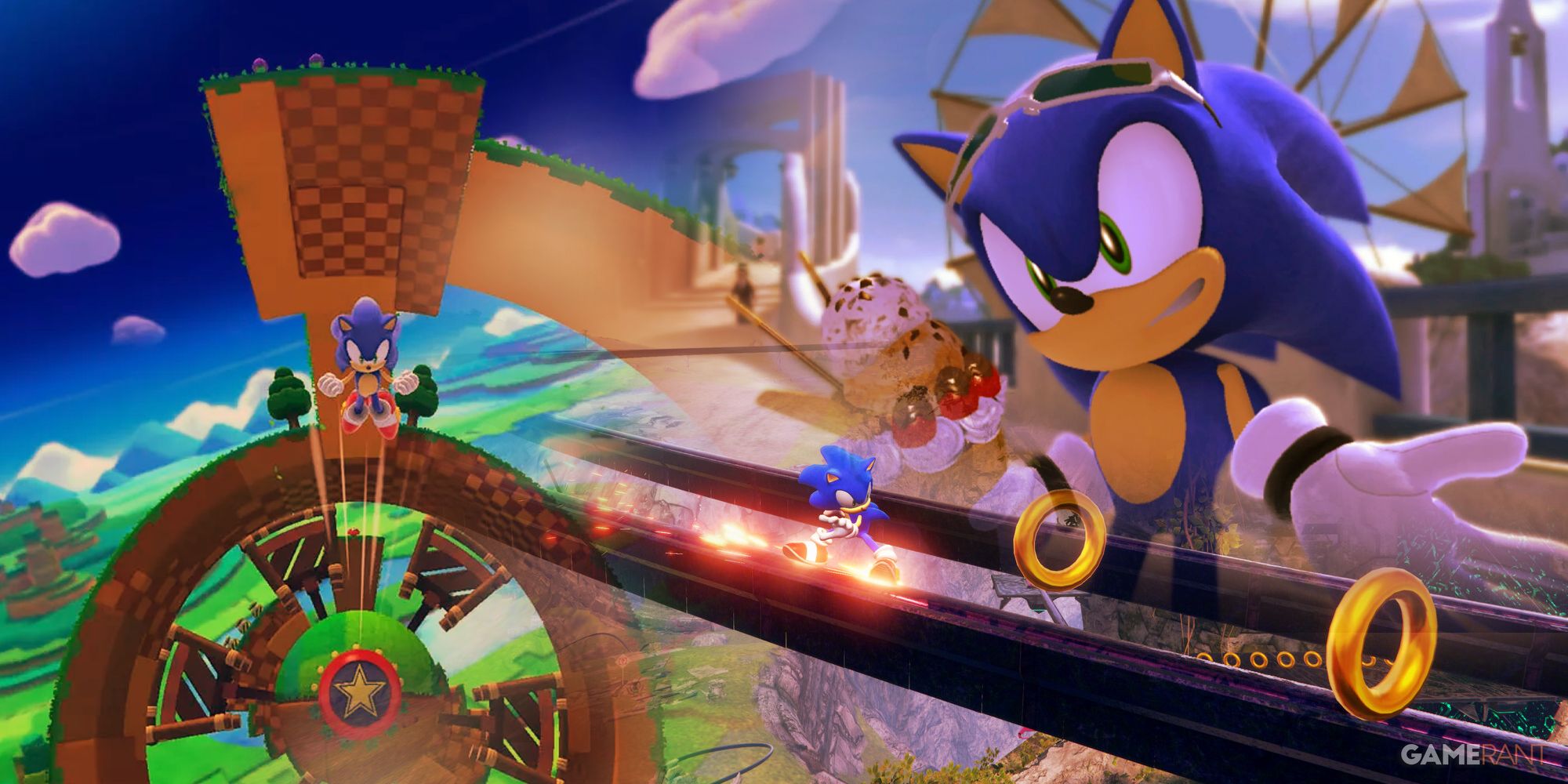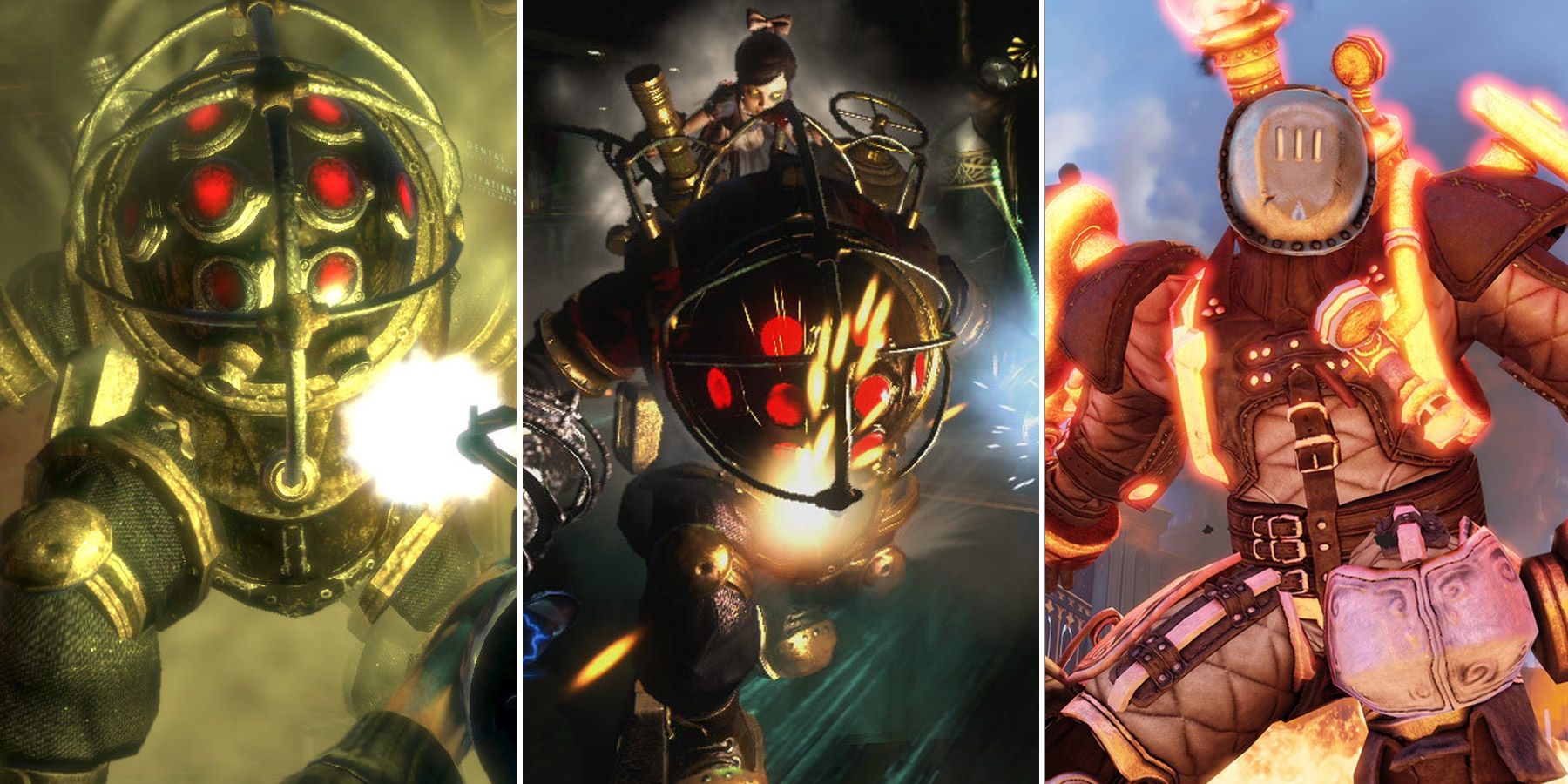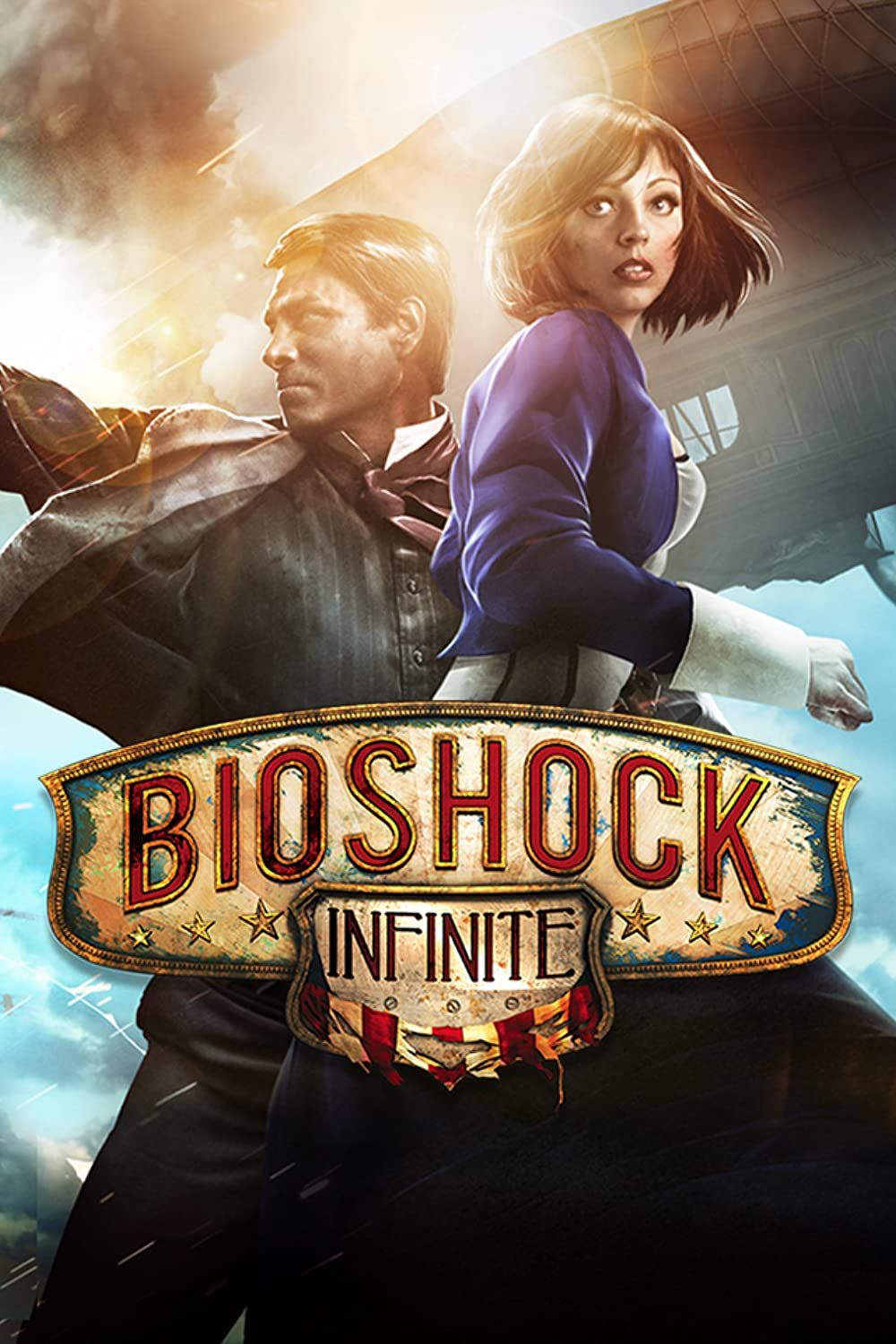Highlights
- BioShock series delves into themes of choice and free will, challenging players to question their own beliefs and actions.
- Each entry offers a unique perspective on free will, from questioning player agency to exploring consequences of moral decisions.
- BioShock: Infinite introduces alternate dimensions to explore the impact of personal choices on identity and reality, and it will be interesting to see how the next BioShock game tackles the concept.
BioShock is a bedrock series for a number of reasons, but perhaps the most resonant are its thematic and philosophical musings on the idea of choice and freedom. Among games that present players with intellectual and moral quandaries, BioShock is often one of the first to be mentioned. Central to its narratives is the idea of free will, and how it relates to humanity's experience, ambition, and treatment of itself.
BioShock has delved into the thorny issue of free will from multiple perspectives in three entries, providing fans with varying viewpoints and tasking them with perhaps comparing and contrasting these with their own preconceptions. As the series went on, it built upon its initial message and further explored free will and its ramifications through differing but complimentary lenses.
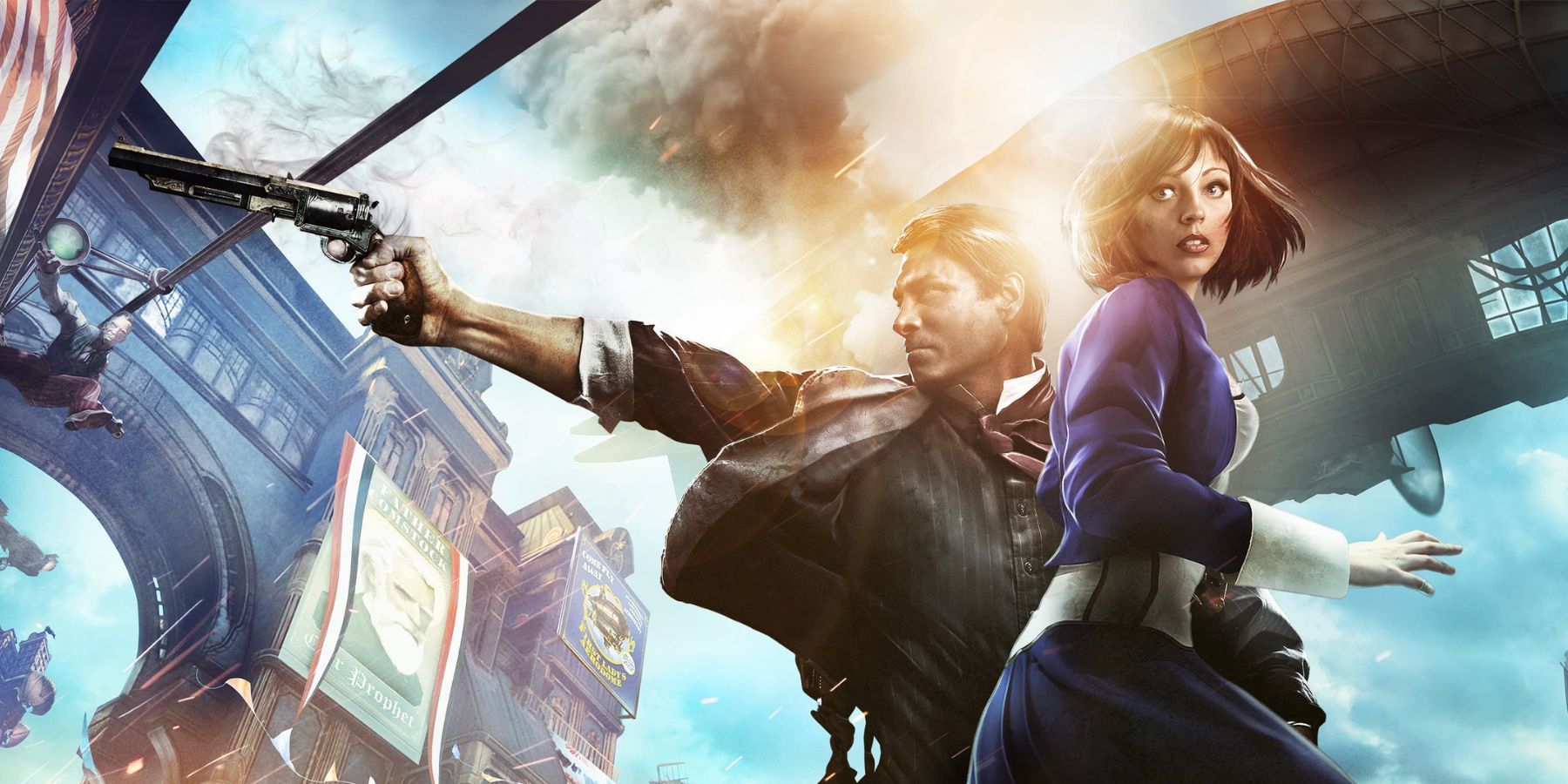
BioShock: The Timeline of Its World, Rapture, and Columbia Explained
BioShock has a complicated timeline, and the complex history of its worlds and settings can be hard to keep track of.
Spoilers ahead.
BioShock's Exploration of Free Will Across the Series
BioShock Held a Mirror to Games and Gamers
BioShock contains a now infamous speech delivered by its ostensible villain, Andrew Ryan. Dripping with condescension and irony by applying to protagonist Jack's, and by default, players' position, the monologue is particularly effective by pointing out how both were blindly following orders up to that point in the plot. It's the gut-punch moment that defines much of the series' identity, as Ryan outlines the way most games tell fans what to do without them realizing or questioning it, and how this can affect perspectives. This was immediately followed up by the reveal of formerly friendly NPC Atlas showing his true colors as puppet master Frank Fontaine, taunting Jack/the player over how easily they were manipulated and controlled by both parties.
Though neither diatribe strictly broke the fourth wall, the parallels between avatar and player are clear, intended as a commentary on the medium and the perceptions sometimes found therein. BioShock achieved the status of representing what games could accomplish when its tenants were used to their fullest to produce a narratively and mechanically engaging experience that challenged audiences to reflect inward.
BioShock 2 Questioned Reality From the Opposite Side
BioShock 2 turned the tables by putting fans in the shoes of one of its onerous Big Daddies, telling the tale of the original's underwater dystopia of Rapture a decade on from Fontaine and Ryan's plundering of it. A new cult-like group led by psychiatrist and therapist Sofia Lamb had risen in the depths, and BioShock 2 used this framework to explore the polar opposite of BioShock 1's deconstruction of Objectivism philosophy.
BioShock 2 depicted a version of Altruism taken to an extreme, warped form in response to Objectivist ideology. Free will and choice were equally integral to its plot, as players saw the world through the eyes of some of the worst victims of Rapture's excess - the Big Daddies and Little Sisters. BS2's story asked fans to pass moral judgment on complicated characters who, whether intentionally or not, were directly responsible for their own loss of freedom, and these decisions colored the ending's tone by showing the consequences of players' own mindsets to them.
BioShock: Infinite Shattered Reality
For the third and most recent entry, many original creators, including Ken Levine, returned to work on 2013's BioShock: Infinite. The title introduced alternate dimensions and timelines, along with referencing and riffing on its previous narrative trappings and other elements. Putting a meta spin on the hero/villain dichotomy, Infinite's protagonist, Booker De Witt, and Zachary Comstock, the antagonist, are revealed to be one and the same, each hailing from a different universe. The question of free will was more personal in BioShock: Infinite's case, as the story revolved around pivotal life choices De Witt made that led to his turn as either one persona or the other in endlessly branching worlds.
The concept was equally represented in BioShock: Infinite's Elizabeth, who shares a complicated family relationship with both figures as a version of their daughter possessing universe-traveling abilities, and who was kept captive by Comstock for this very reason. Elizabeth can thus peer into the various timelines and essences of both and see how their past choices affected the people they became, shaping their perceptions of their selves and realities as well as in relation to her. Infinite's DLCs then tied back to the original game and provided a circular time/narrative loop via this device to close off the story.
Each BioShock entry examined the idea and conundrum of free will from various angles, playing off one another and asking gamers to consider the same in their own experiences. This has made it one of the most memorable and impactful gaming franchises, with fans still having discussions and dissections of its themes and aspects in this regard.
Bioshock 4 has been in development since 2019 by a new studio, although only vague rumors and leaks have surfaced regarding its direction.
